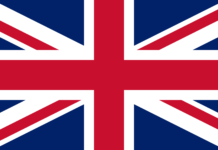Romania makes first deliveries of natural gas extracted from its Black Sea continental shelf.
The first deliveries of natural gas extracted from the Black Sea have reached Romania’s National Transport System. This is an important achievement and comes at a crucial moment. Radio Romania’s journalists have noted that in the last 30 years, this is the first new project to develop the natural gas production on the Romanian Black Sea continental shelf. It is also the first development project of its kind taking place at this moment.
The Midia development project consists of five production wells in the Doina and Ana fields, in the 15 Midia perimeter. Carried out in a low-depth area of the sea, it also consists of a production platform monitored and operated from the shore and an underground pipe of 126 km transporting the gas to the new natural gas treatment station in the village of Corbu, on the Romanian coast. Afterwards, the gas is delivered to the National Transport System. The exploitation of the two fields in the Black Sea is scheduled to last ten years. Half a billion cubic metres of natural gas is expected to be extracted this year, with production to reach 1 billion cubic metres in the next three years. This will cover 10% of Romania’s gas demand, but the project also aims to open new developments on Romania’s Black Sea continental shelf and to launch a series of initiatives to develop green energy.
The exploitation of the natural gas deposits on the Romanian Black Sea continental shelf has been a strategic intention of the Romanian state, but it has become more urgent recently, as natural gas has become a geopolitical weapon and the subject of blackmail from the privileged supplier of several European countries, namely Russia. The crisis generated by the latter’s invasion of Ukraine has put the spotlight on the dependence of these states on Moscow’s political decisions. The strategy of economic sanctions against Russia also comes into conflict with the need to provide natural gas for the economies and people of the EU states. A race has thus started to replace as soon as possible the Russian gas with other sources, in particular liquefied gas.
Meanwhile, Moscow has taken the decision to simply cut off contractual deliveries to certain European countries, which has further accelerated the application of alternative solutions. Romania is dependent on Russia for up to 10% of its natural gas. In this context, the exploitation of its continental shelf, which forms part of EU space, is the ideal solution, albeit partial, to this great problem facing the democratic world as the war rages in Ukraine.(Marius Tiţa, Radio Romania International)







